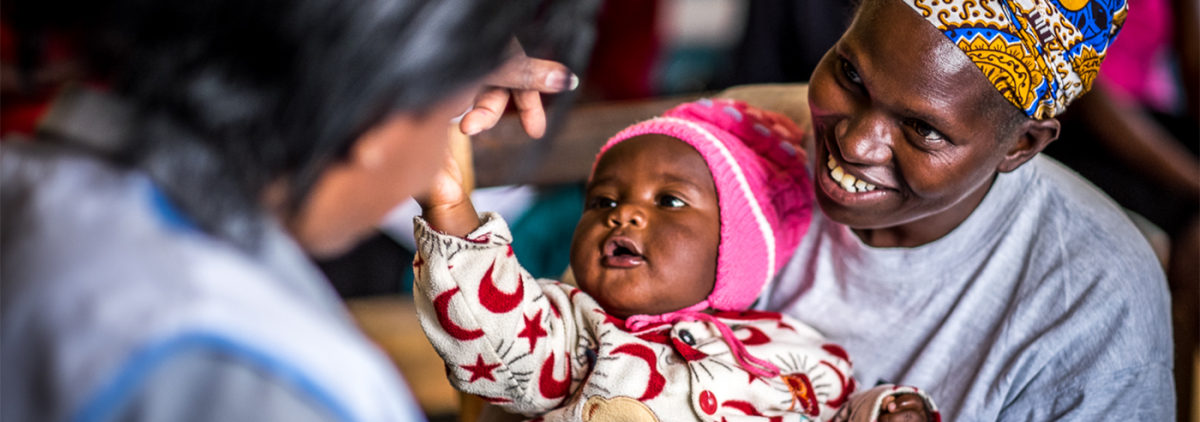The Department of Global Health seeks private investment to leverage our expertise towards the goal of improving the health of the world. Current funding priorities include the following:
Enhancing the educational experience of the next generation of global health leaders
- SUPPORTING THE NEXT GENERATION OF GLOBAL HEALTH LEADERS. There are several ways to support the next generation of global health leaders, including need- and merit-based scholarships, prizes recognizing scholarly achievement, and travel awards that enable them to learn by undertaking real-world problem-solving. The Endowed Fellowship for Global Health Excellence, Equity and Impact supports recruiting and retaining highly ranked students at the Department of Global Health.
- CAPACITY-BUILDING THROUGH ENDOWED CHAIRS AND PROFESSORSHIPS. These positions are powerful tools that allow the DGH to recruit and retain internationally distinguished faculty whose work is essential to advancing the priorities of the department.
Supporting research in emerging areas of global health
As chronic and lifestyle-related health issues overtake infectious diseases as the leading causes of death and disability in most of the developing world, the DGH’s current priorities for expansion include the following six areas:
- GLOBAL HEALTH SECURITY AND PANDEMIC DISEASE PREVENTION. Zika, Ebola, MERS, SARS and influenza are just a few of the infectious diseases that threaten global health security and have profound personal and economic consequences. The complex factors driving the emergence and rapid spread of these diseases call for new, systems-based approaches to global health security. To address these factors, the DGH is establishing a University-wide initiative in Global Health Security and Pandemic Disease Prevention.
- HUMAN HEALTH AND GLOBAL ENVIRONMENTAL CHANGE. Global environmental change is one of the most important forces shaping health in this century. Building on the recruitment of key faculty in climate change and health, the DGH intends to establish a Center for Health and Global Change that will lead to the development of evidence-based health interventions and policies for adaptation to climate change.
- GLOBAL CARDIOVASCULAR HEALTH. With successes in treating global infectious diseases — and with lifestyle changes in the developing world — other conditions, such as cardiovascular disease, have come to the fore. In partnership with the Division of Cardiology in the UW School of Medicine, the DGH is poised to create the UW Program for Global Cardiovascular and Metabolic Disease Prevention and Care.
- WOMEN, ADOLESCENTS AND CHILDREN. The mission of the Global Center for Integrated Health of Women, Adolescents and Children (Global WACh) in the DGH is to improve global health through outstanding research, education and leadership focused on a life-cycle approach: viewing women, adolescents and children as interconnected pillars in the health of families, communities and societies.
- GLOBAL MENTAL HEALTH. More than a billion individuals around the world suffer from mental health or substance-abuse problems. The DGH is partnering with the Department of Psychiatry and Behavioral Sciences in the UW School of Medicine to establish the UW Program for Global Mental Health and Well-Being to support research, training and service directed toward improving mental health in low- and middle-income countries.
- GLOBAL INJURY AND VIOLENCE PREVENTION. The DGH intends to expand current research and educational programs in injury and violence prevention, synergistically supporting work focusing on women, adolescents and children, and offering opportunities for increased engagement to colleagues across surgical subspecialties and emergency medicine.
Learn More
To learn more about how philanthropy can fuel and sustain this important work, please contact Megan Ingram, Assistant Dean for Advancement, UW School of Public Health, mkingram@uw.edu, 206.616.7197, or Christopher S. Thompson, Senior Director of Corporate and Foundation Relations, UW Medicine Advancement, csthomp@uw.edu, 206.543.8203.
